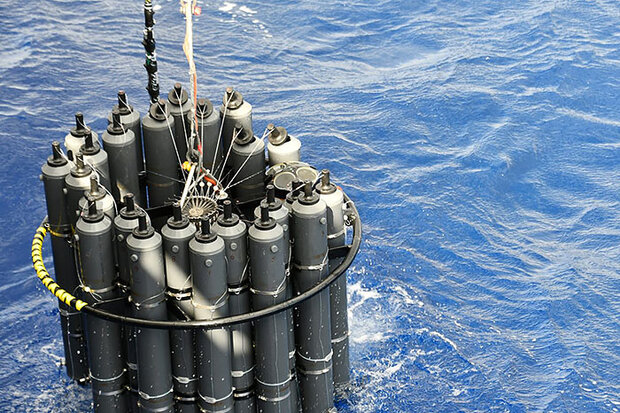Fifty-five days at sea: Collecting oceanographic data from Brazil to Iceland

Canisters hold sea samples. Credit: NOAA

Canisters hold sea samples. Credit: NOAA
On May 9, a team of scientists aboard the NOAA Ship Ronald H. Brown arrived at their final destination in Reykjavik, Iceland following 55 days at sea. The team of 50 scientists and 28 crew members followed a track through the North Atlantic, from Brazil to Iceland, referred to as the A16N transect, and successfully completed 150 stations, collecting over 3,000 samples from the Atlantic’s surface to the seafloor, giving scientists a holistic snapshot of the Atlantic Ocean basin.
The Global Ocean Ship-Based Hydrographics Investigations Program (GO-SHIP) is an internationally coordinated effort to perform transects of all major ocean basins to decadally study changes in ocean heat content, ocean circulation, the carbon cycle, marine biogeochemistry, and biological parameters. This was the fourth occupation of the A16N line, with expeditions dating back to 1993. Data collected during this expedition will help researchers address critical questions regarding changes in the ocean’s circulation and the uptake of human-released carbon dioxide. The data will also enable them to examine how ocean warming is impacting the movement of seawater across the entire planet and influencing climate.